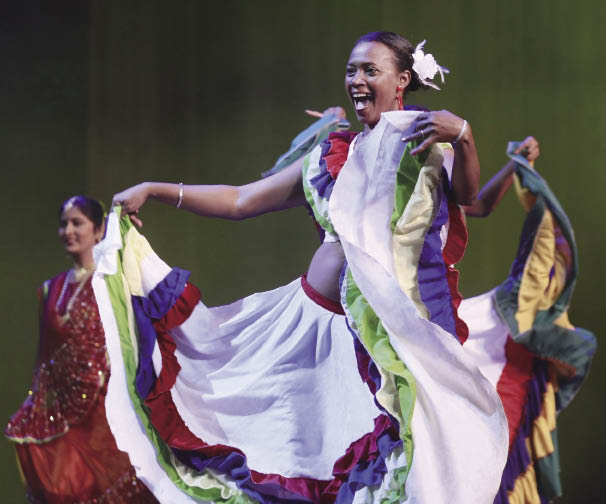|
Stretching the Bandwidth
Rather than stay focused on content alone, both cultures sought to continuously enrich the modes of cultural exchanges. To that end, opportunities are being sought for extensive exchange and cooperation in education, media, sports and publishing.
China annually offers scholarships to a certain number of African students bound for her universities and the quota was increased to 4,000 persons in 2009. China was already a popular choice for African students studying abroad, but today's African students show a deeper commitment, now choosing to work for a degree instead of just picking up short-term specialty courses. Tanzania has set up a national scholarship fund for students planning to study in China. Educational cooperation also includes training: the Chinese government conducts short and medium-term training sessions for Africans sent by their countries to cultivate professional and technical skills.
Thanks to the frequency of China-Africa cultural exchange, it is common for African people to learn Chinese. Since 2004 China has cooperated with African universities to establish Confucius institutes, which promote the Chinese language and culture among local people, especially students. Now there are more than 20 Confucius institutes in 13 African countries, which are the core and crown of China-Africa educational partnerships. China has set up unique cultural centers in Mauritius and Benin respectively, with the responsibility to teach the Chinese language, dance and martial arts, and to showcase Chinese films and hold exhibitions on Chinese culture – all activities popular with the locals.
On the issue of a shared China-Africa history, late in 2005, China signed a contract with Kenya to jointly undertake an archeological dig on and around Lamu Island, with the goal of excavating the historical site of Zheng He's arrival in Kenya 600 years ago. The two nations will explore the underwater world until at least the close of 2009, a first for both countries in the field of archeology.
 |
|
"African Night" in Beijing, a large-scale theatrical production — and party — held before the 2008 Olympics. China Photo Press |
Tapping African Human Resources
Cultural exchange is essentially the dialogue and cooperation between nations; China recognizes how critical it is to help African countries train professionals in different disciplines. As an important part of cultural relations between China and Africa, China announced the establishment of an "African Human Resources Development Fund" during the Forum on China-Africa Cooperation - Ministerial Conference 2000. In past decades, hundreds of Chinese experts and artists were sent to Africa to teach fine arts, dance, acrobatics, martial arts, literature, and other humanities. In 2002, these training programs were revived in response to requests from the continent for human resource development.
China trained acrobats for Ghana, Kenya and Sudan in 1970s and 1980s. Famous acrobatic traditions are embodied in academies like the Wuqiao Acrobat School, whose programs have accredited more than 50 coaches and acrobats for Tanzania, Kenya, Ghana, Ethiopia and Sudan. Their impressive performances won praise and acclaim at venues such as the Forum on China-Africa Cooperation Ministerial Conference 2003, the China-Africa Youth Festival and African Culture in Focus 2008. Recently, dancers from China succeeded in their efforts to rejuvenate the National Dance Company of Cameroon, building it into one of the nation's most significant cultural brands. In the summer of 2008, China invited the dance troupe to give performances of "Africa Night" at the closing ceremony of "Meeting in Beijing – the 2008 Beijing Olympic Cultural Festival." With Chinese artistry getting so much attention, some were even honored with an invitation from the State of Eritrea to spend from April to August 2008 helping authorities plan and conduct the official ceremonies dedicated to the 17th anniversary of their independence, the remembrance of martyrs, and the War of Independence. |
